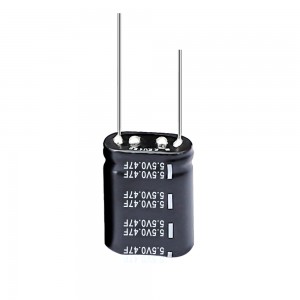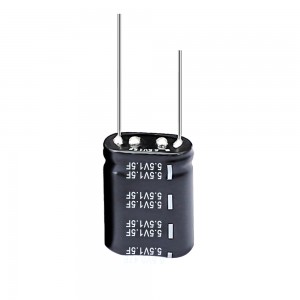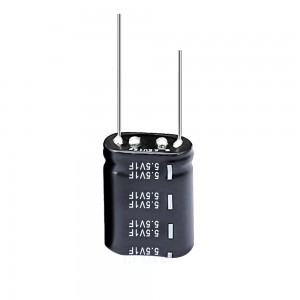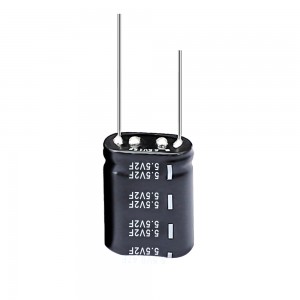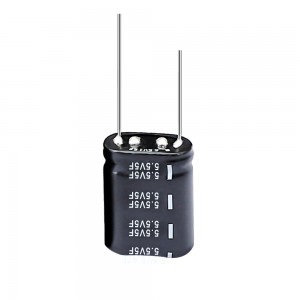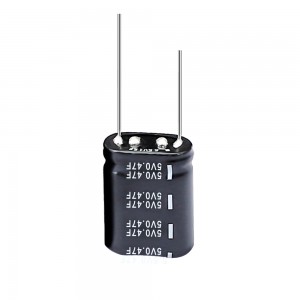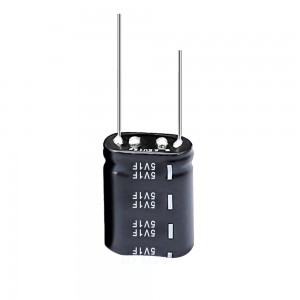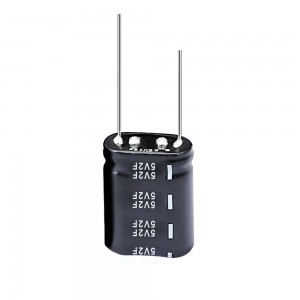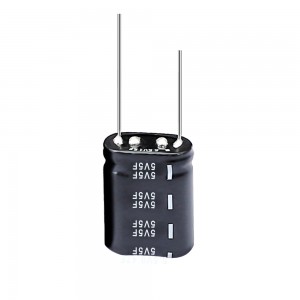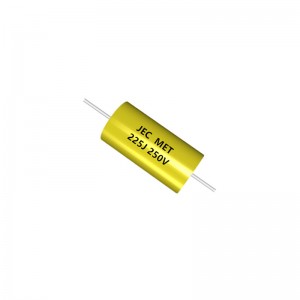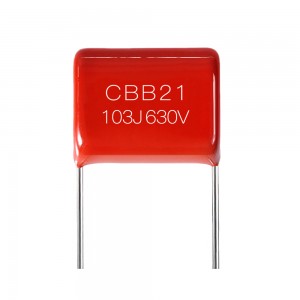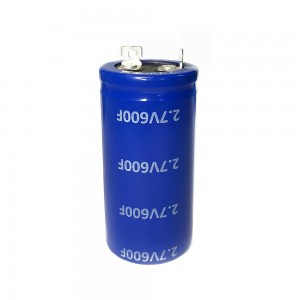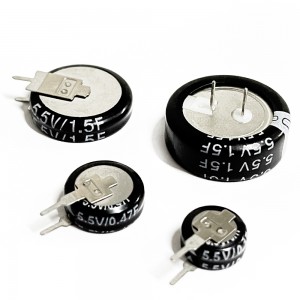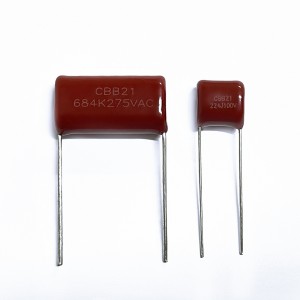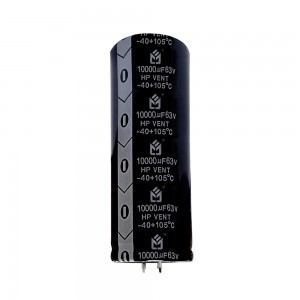Use two or more 2.7V capacitors in series
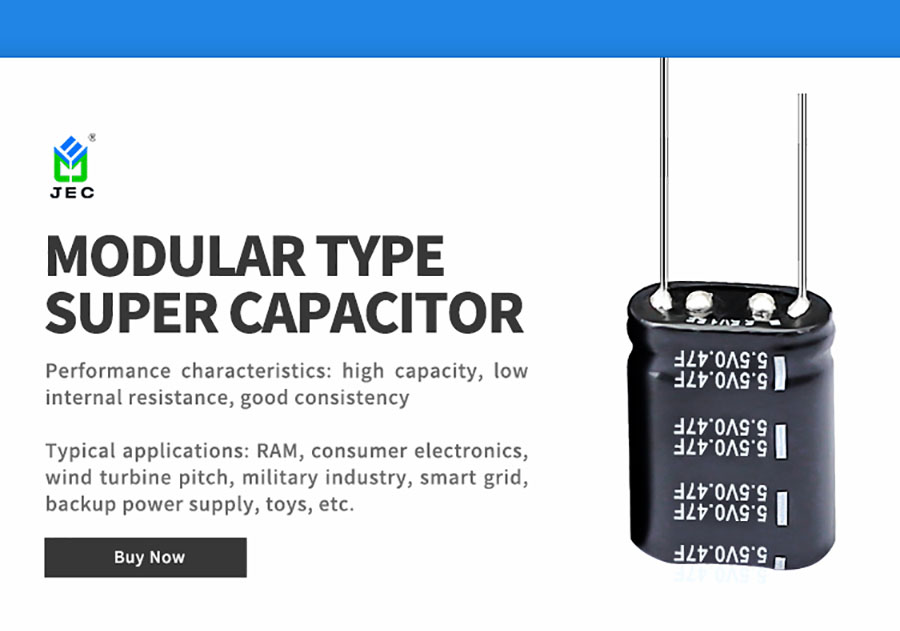
| Types | Rated voltage | Nominal capacity | Internal resistance | Size(mm) |
| (V) | (F) | (mΩ @1kHz) | ||
| Modular Type | 5.5 | 0.47 | ≤900 | 18.2*9.5*18 |
| 5.5 | 1 | ≤700 | 18.2*9.5*26.1 | |
| 5.5 | 1.5 | ≤550 | 18.2*9.5*26.1 | |
| 5.5 | 0.47 | ≤850 | 16.5*8.5*15 | |
| 5.5 | 1 | ≤650 | 16.5*8.5*22 | |
| 5.5 | 1.5 | ≤500 | 16.5*8.5*22 | |
| 5.5 | 2 | ≤300 | 25.5*12.5*22 | |
| 5.5 | 2 | ≤300 | 20.5*10*21.5 | |
| 5.5 | 5 | ≤200 | 20.5*10*26.5 | |
| 5.5 | 5 | ≤200 | 25.5*12.5*28 | |
| 5 | 0.47 | ≤850 | 16.5*8.5*15 | |
| 5 | 1 | ≤650 | 16.5*8.5*22 | |
| 5 | 1.5 | ≤500 | 16.5*8.5*22 | |
| 5 | 2 | ≤300 | 25.5*12.5*22 | |
| 5 | 2 | ≤300 | 20.5*10*21.5 | |
| 5 | 5 | ≤200 | 20.5*10*26.5 | |
| 5 | 5 | ≤200 | 25.5*12.5*28 |
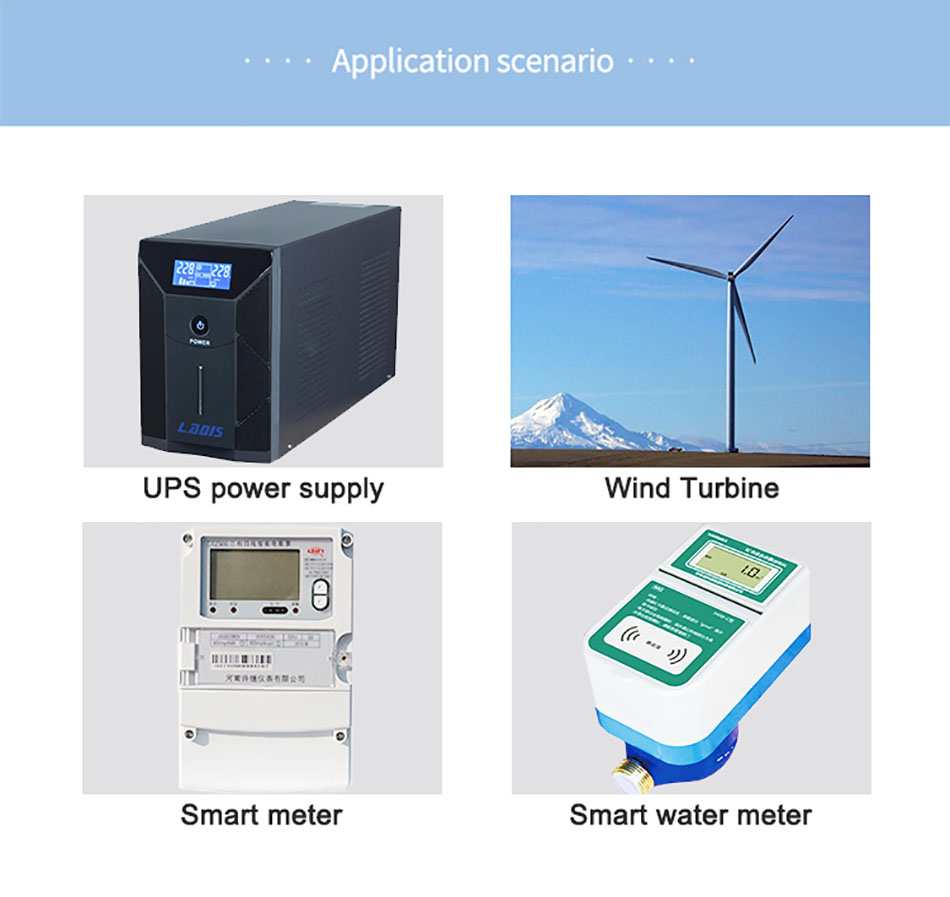
Super Capacitor Module Type Application
Since the working voltage of a super capacitor is not high, generally only 1V-4V, the commonly used single super capacitor voltage specification is generally 2.7V, and in practical applications often require 16V, 48V, 54V, 75V, 125V or higher voltage in order to meet the use of these devices. Most of these equipment are wind power generation, automotive HEV, military starting power supply and microgrid equipment, etc. In order to meet the requirements of the use of these equipment, super capacitor modules have emerged.
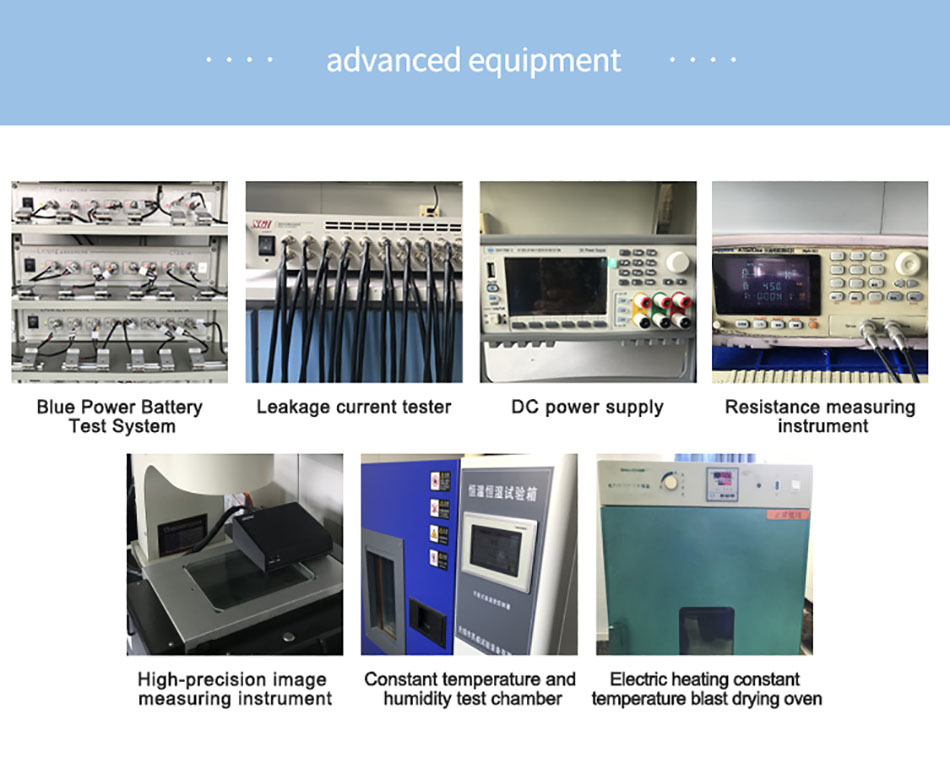
Advanced Production Equipment
Our company adopts advanced production equipment and instruments, and organizes production in strict accordance with the requirements of ISO9001 and TS16949 systems. Our production site adopts "6S" management, ensuring the stability and reliability of products. We produce products of various specifications in accordance with International Electrotechnical Standards (IEC) and Chinese National Standards (GB).
Certifications

Certification
JEC factories are ISO-9000 and ISO-14000 certified. Our X2, Y1, Y2 capacitors and varistors are CQC (China), VDE (Germany), CUL (America/Canada), KC (South Korea), ENEC (EU) and CB (International Electrotechnical Commission) certified. All of our capacitors are in line with the EU ROHS directives and REACH regulations.
About Us
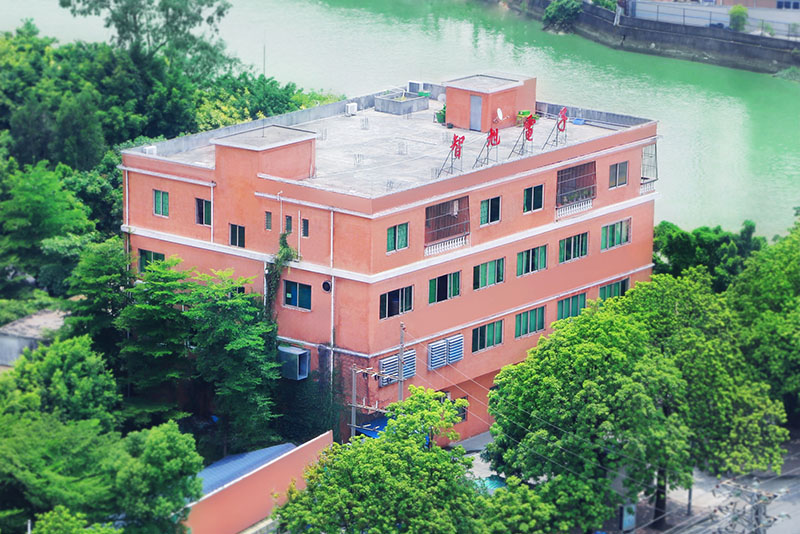
Our company has strong technical force and engineers with rich experience in ceramic capacitor production. Relying on our strong talents, we can assist customers in capacitor selection and provide complete technical information including inspection reports, test data, etc., and can provide capacitor failure analysis and other services.
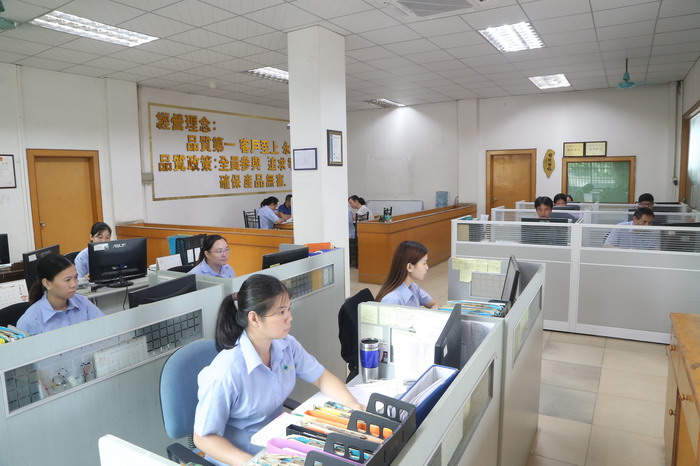
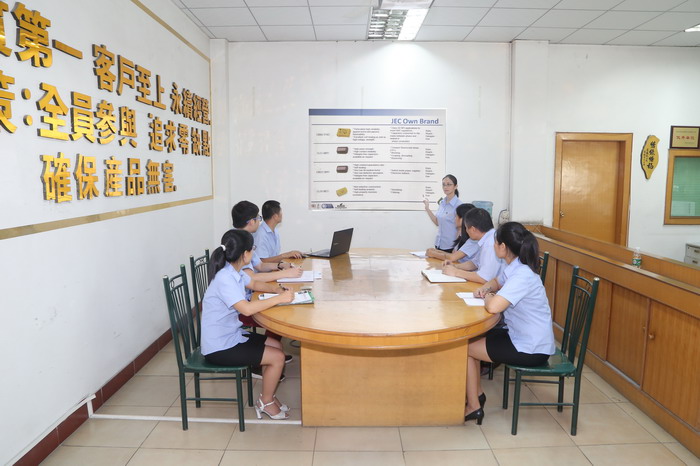
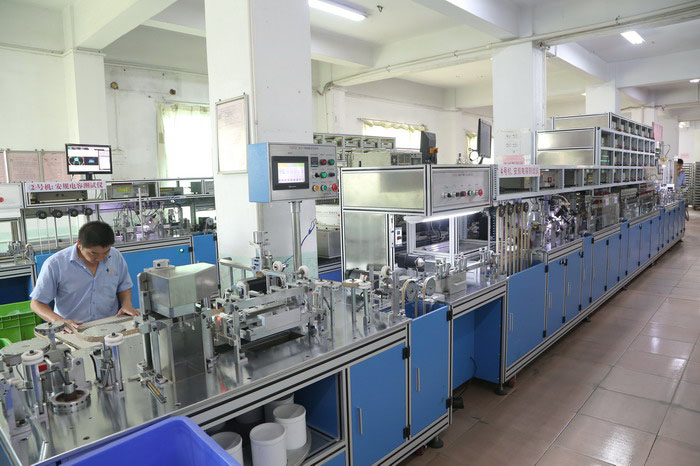
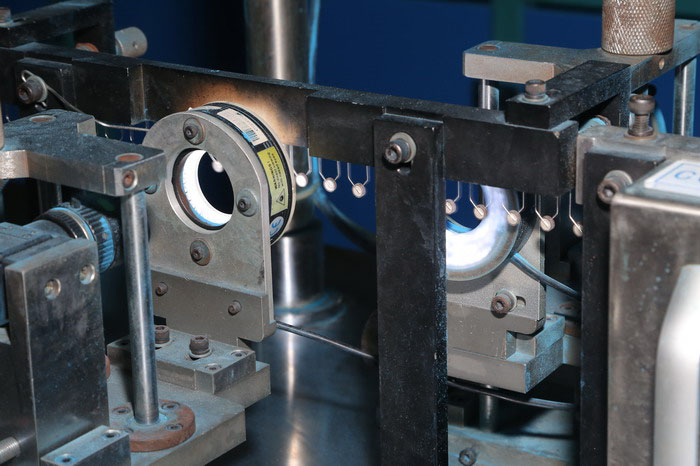
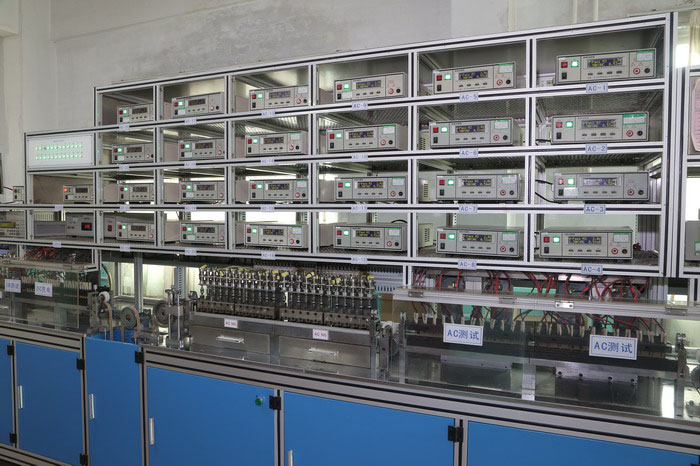
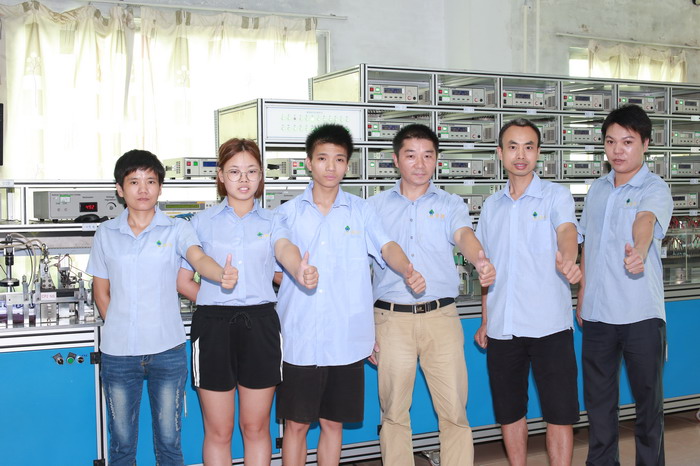
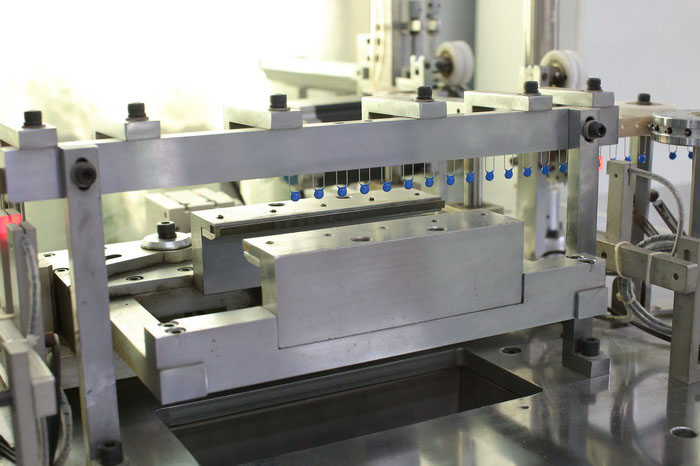
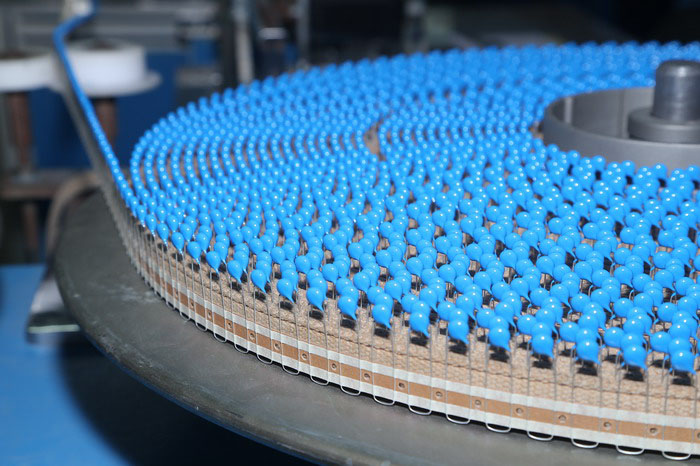
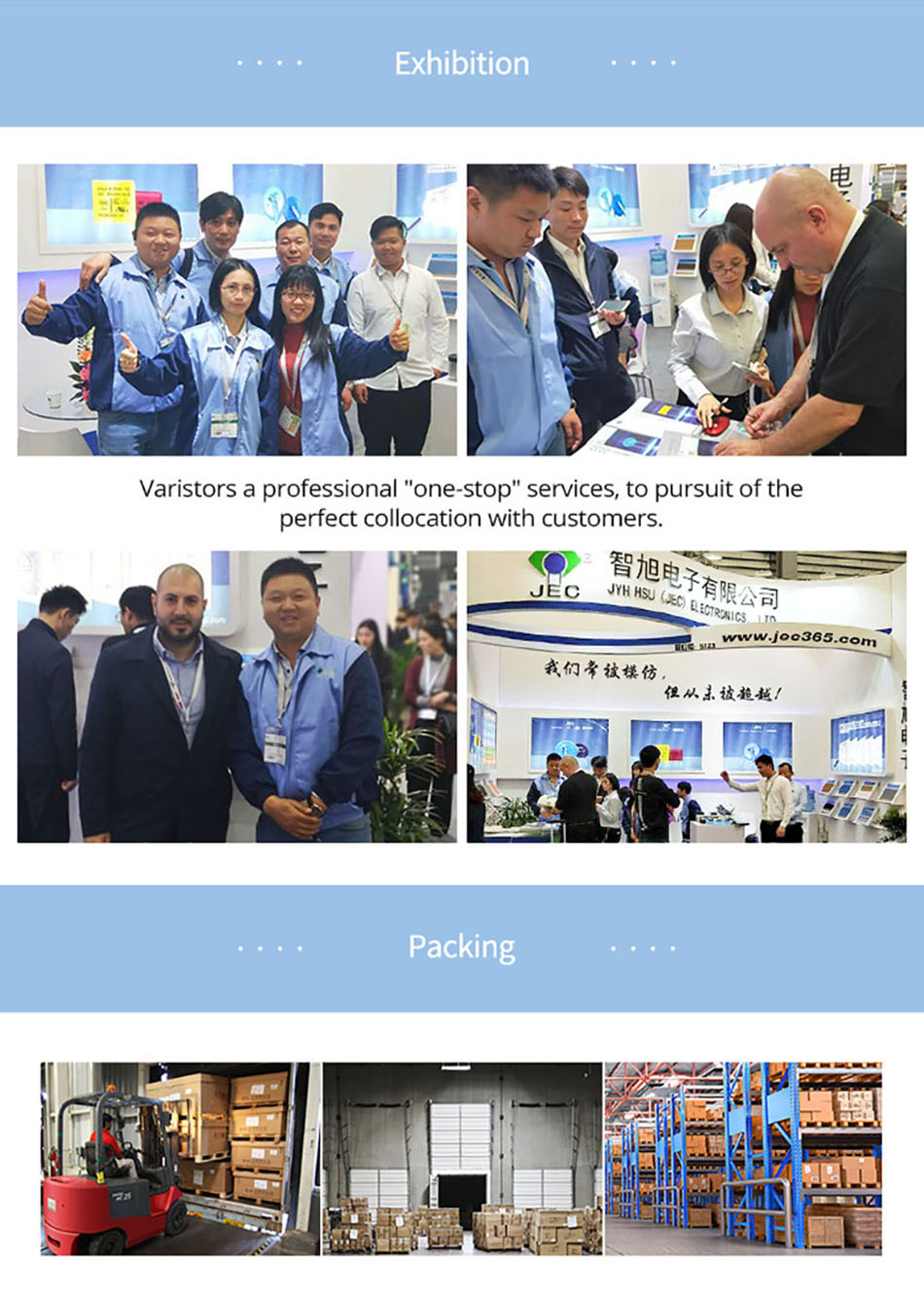
1. Can supercapacitors replace lithium batteries?
Supercapacitors have unparalleled advantages that lithium batteries don’t have. For example it can store a large amount of electricity in a small volume; its long cycle life enables it to be repeatedly charged and discharged thousands of times; short charge and discharge time; good ultra-low temperature characteristics; high current discharge capability, etc. However, it is still too early to say that super capacitors can replace lithium batteries. Because current production of super capacitors is technically incomplete and the production cost is high. In addition, its energy density is low and cannot store more energy per unit volume. Another point is that it is not resistant to high temperatures and cannot be placed in a humid environment, otherwise it will affect normal operation and even damage the battery.
2. What are your advantages?
1) We have a full range of capacitor models, which will save your time from looking for different models. As an experienced manufacturer, we can also recommend components for you to your specific requirements if you need.
2) We offer competitive price with quality assurance.
3) We offer good before and after-sale services, such as updating our clients of product status, technical support etc.(24 hour online).
4) We have sufficient stocks, so that the delivery time is usually short.
3. How about your after-sale services?
1. 365 day warranty
2. 20 days refund without reason
3. If the customer has any questions, we will provide technical support in a timely manner.
4. What is your MOQ?
No MOQ.we accept small orders. Because we believe that small orders may become big orders in the future.
5. If I place an order, how long will it take to deliver?
It usually takes about only 7-14 days after receiving the payment, depending on the quantity ordered and the stock status.
6. What certifications do you get?
Our factories are ISO9001 and ISO14001 certified. Our X2, Y1, Y2 capacitors and varistors are CQC (China), VDE (Germany), CUL (America/Canada), KC (South Korea), ENEC (EU) and CB (International Electrotechnical Commission) certified. All of our capacitors are in line with the EU ROHS directives and REACH regulations.
7. How long is the charging time of the super capacitor?
Fast charging is one of supercapacitor’s characteristics. Charging for 10 seconds to 10 minutes, a supercapacitor can reach more than 95% of its rated capacity. Supercapacitors have a very high power density, 10-100 times that of batteries, and are suitable for short-time high-power output; the charging speed is fast and the mode is simple, it can be charged with high current, and the charging process can be completed in tens of seconds to several minutes. It is fast charging in the true sense; there is no need to check whether it is full, and there is no danger of overcharging.
8. How does the leakage current affect the supercapacitor?
When the supercapacitor’s voltage becomes stable, the voltage on each unit of the supercapacitor will change as the leakage current (instead of capacitance) changes. The greater the leakage current, the lower the rated voltage and vice verse. This is because leakage current will cause the supercapacitor unit to discharge and thus reduce its voltage. As a result, the voltage of other units connected in series with it will also be affected (assume that all the supercapacitor units are powered by the same constant voltage).
9. What would influence the leakage current of Supercapacitors?
From the prospective of the production, the leakage current has much to do with the raw materials and manufacturing process. From the actual use environment, three factors may affect the leakage current:
1) Voltage: the higher the voltage, the higher the leakage current;
2) Temperature: the lower the temperature, the lower the leakage current;
3) the smaller the capacitance of the supercapacitor, the smaller the leakage current. Also, the leakage current will become smaller when the supercapacitor is under use.
10. Why is the voltage of Supercapacitors so low?
In order for large capacitance, the dielectrics should be made very thin and thus the voltage will be low.
11. Can a simple energy calculation method be used when selecting a super capacitor for a backup power system?
Simple electric energy calculation methods may not meet the requirements, unless you take into account all the factors that affect the energy storage performance of the entire life cycle of the supercapacitor.
12. When the temperature of the super capacitor is too high, will its capacity decrease?
When the ambient temperature is too high, the compensation ability of the super capacitor will be reduced, and it will also produce harmonic resonance with a certain frequency in the power grid, which will cause certain damage to the system. Therefore, we should consider the impact of temperature increase on the operation of the super capacitor. Otherwise the capacity of the super capacitor will be reduced, resulting in damage to the system.


